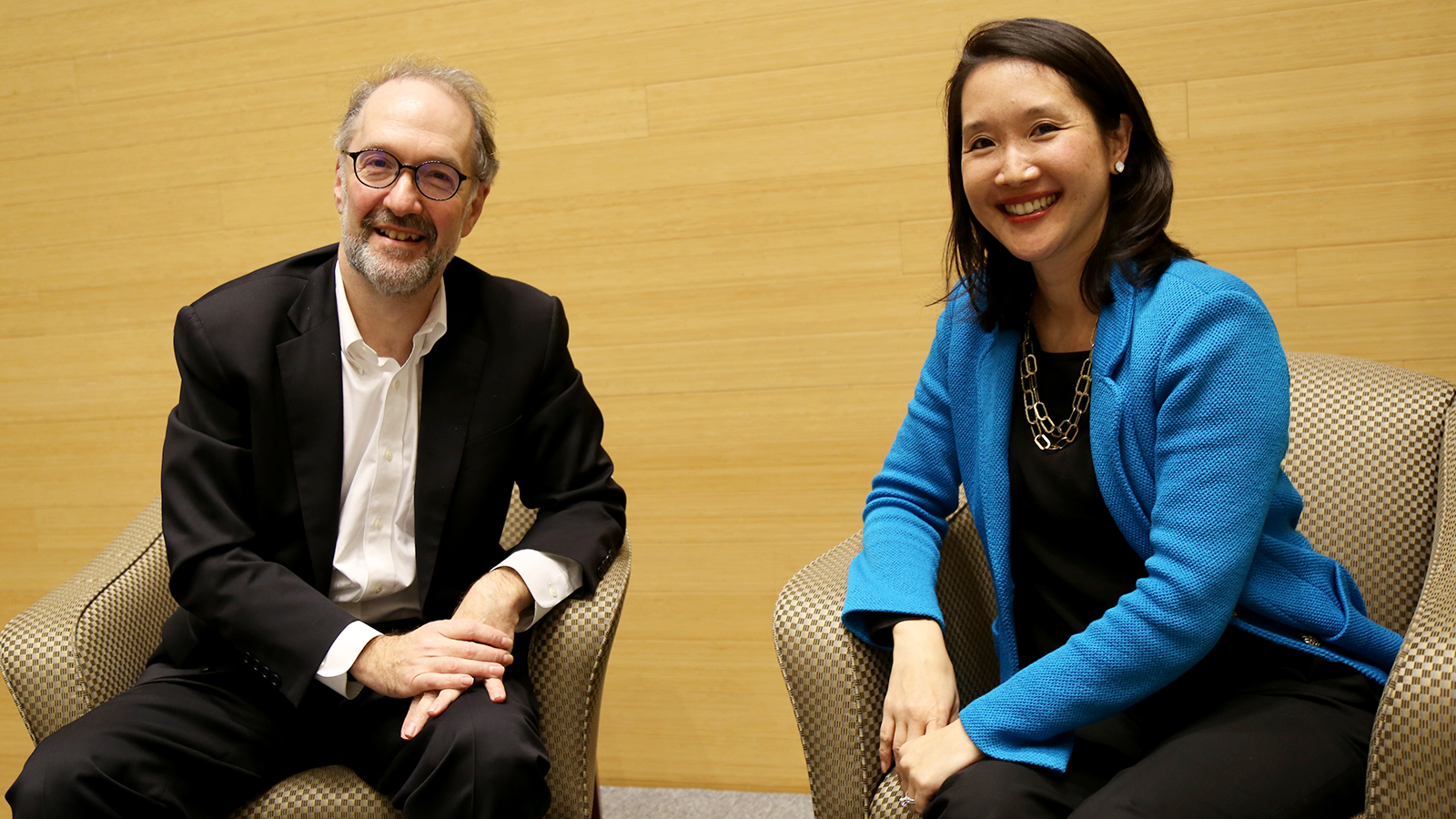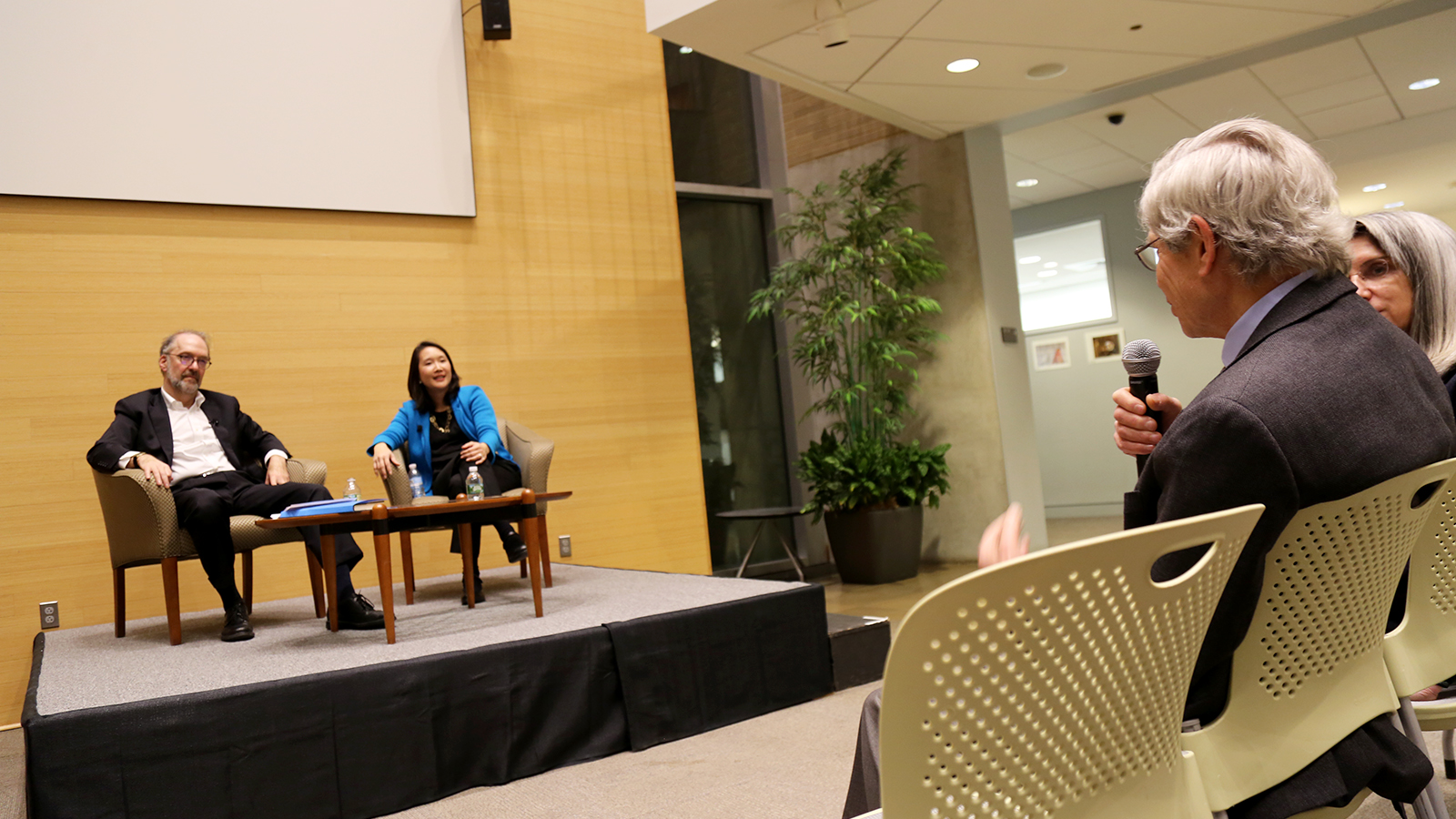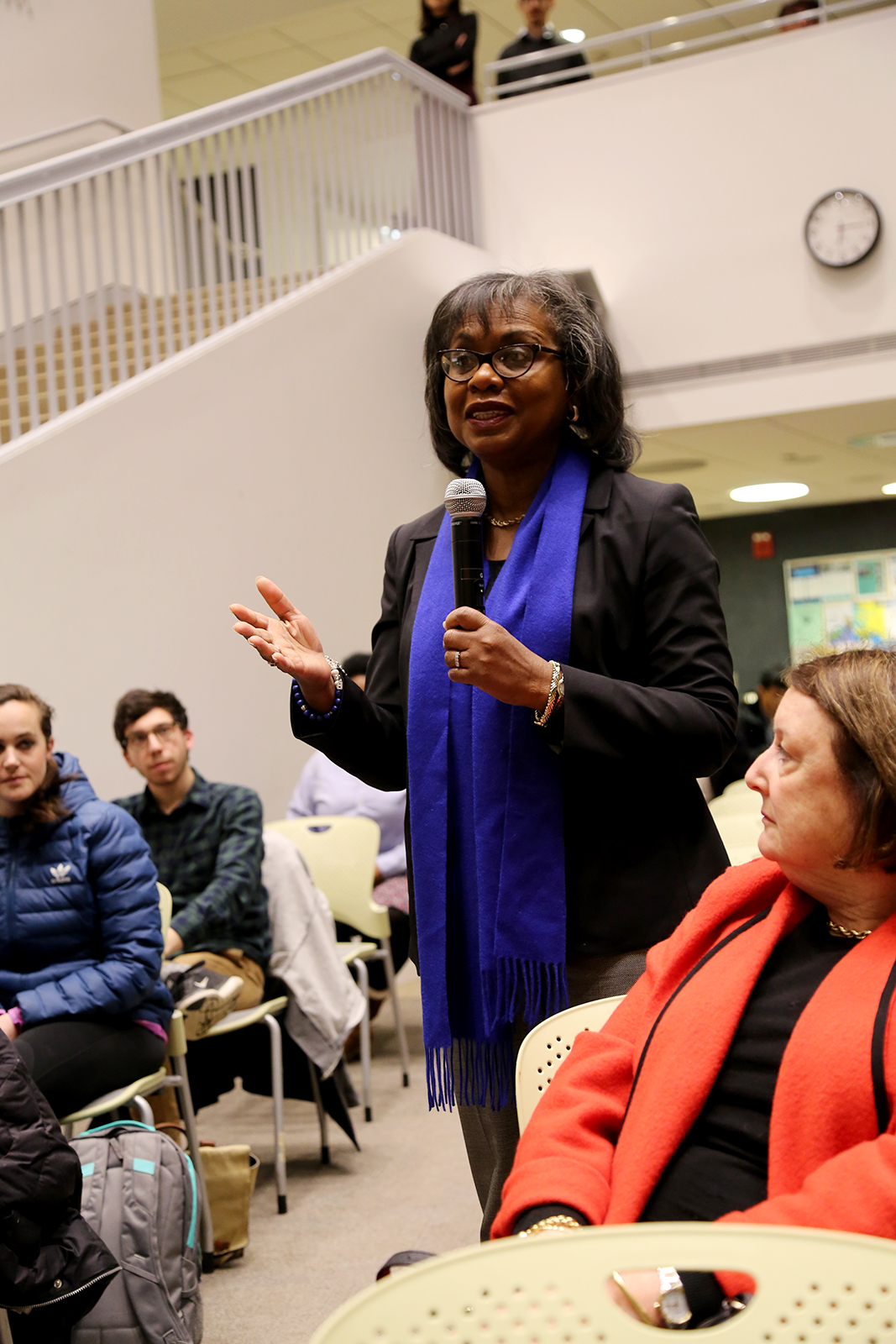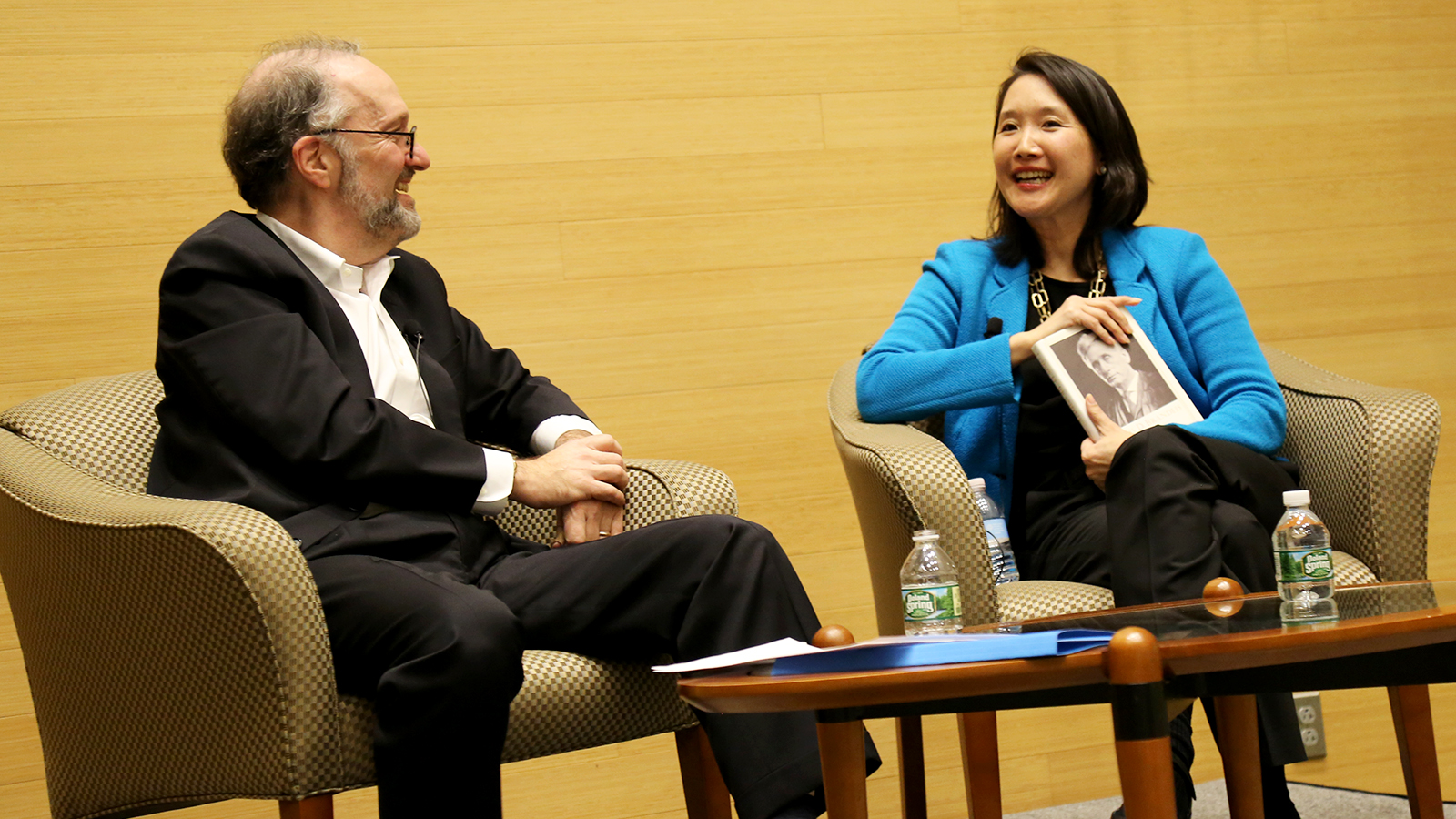
Just days removed from finishing her term as the chair of the Equal Employment Opportunity Commission (EEOC), Jenny Yang came to the Heller School for Social Policy and Management to discuss what it was like to serve through the first year of an administration that didn’t appoint her, the importance of changing workplace culture around sexual harassment in light of the #MeToo movement and the new challenges of protecting workers' fractured work environments.
“If you want to change the system, you should first understand how it works,” she said, quoting her mother, who first encouraged her to take an internship on Capitol Hill. “I’ve moved back and forth inside and outside of government, and I’ve seen the value each piece plays in promoting greater social change.”
Her talk was part of the third installment of the Conversations with the Dean series, where Dean David Weil invites public figures, policymakers and advocates in social justice fields to have wide-ranging conversations with students, faculty and staff.

Yang, an attorney, has a long history in employment law. She previously worked for the Department of Justice in the Civil Rights Division, and was a partner at Cohen, Milstein, Sellers & Toll, where she represented plaintiffs in many civil rights and wage and hour class action lawsuits, including the largest sex-discrimination class-action suit in history. She served on the EEOC commission starting in 2013 and became chair in 2014.
Because of the way EEOC terms are structured, Yang, who was appointed by President Barack Obama, was able to stay on for a full year into the Trump administration. She admitted it was challenging at times, but she stuck with it because she believed in the importance of the agency’s mission: creating policy and enforcing laws against workplace discrimination.

She contrasted the nimbleness and creativity of working in private practice with the more precedent-based approach of serving in the government, as well as the shock of going from litigating cases against employers to being the defendant as the head of a 2,000-person agency.
“Even though we were the EEOC, we didn’t get everything right,” she said. “There were also personnel challenges, internally. Similar to your school where people have high expectations for equality and fairness, you hold yourself to an even higher level.”
Under Yang’s leadership, the EEOC launched an anti-harassment taskforce—prescient in light of the #MeToo movement exposing decades of injustice today. Professor Anita Hill, who was in the audience, said she would be consulting the taskforce’s recommendations as she leads a Hollywood commission on sexual harassment.
Yang also touched on her new role as an Open Society Foundations Leadership in Government Fellow, where she’ll be working to strengthen workplace protections for Americans in an increasingly precarious work environment—a topic that dovetails with Dean Weil’s research on the fissured workplace.
At the end of the evening, Weil presented Yang with a biography of Supreme Court Justice Louis Brandeis, for whom Brandeis University is named, as a token of his and Heller’s appreciation of her visit.

Watch the full conversation, below:
